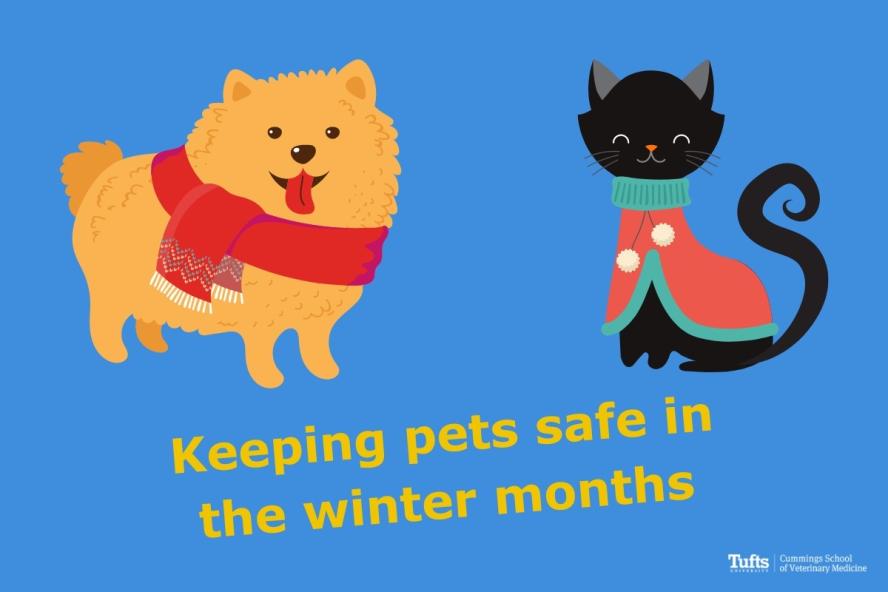-
About
- Leadership & Faculty
- News & Events
-
Academics
- Graduate
- Advanced Clinical Training
- Continuing Education
- Academic Departments
- Academic Offices
- Simulation Experiences
-
Student Life
- Offices
-
Research
-
Hospitals & Clinics
- Emergency Care
- Hospital Services
-
Community Outreach
- Volunteer
Winter Hazards for Pets
Ask the expert

As the daylight wanes and temperatures drop this time of year in New England, here are some tips to help keep pets safe throughout the winter.
- Have a working smoke and carbon dioxide detector, ideally connected to your smart phone so you will receive notification if dangerous levels of smoke or CO2 are detected.
- Watch out for excessive chocolates and fatty foods, which seem more prevalent around holiday and new year celebrations.
- Poinsettias are not that toxic. Eating leaves could cause digestive issues, but doing so is rarely fatal.
- Make sure lakes and ponds freeze completely before walking on them.
- Acclimating to the cold can sometimes take a while for dogs. If your pet does not have thick fur, they should wear a coat to enjoy time outside when temperatures drop below 15 degrees F.
- Always use pet-friendly ice melt to avoid aggravating the pads of your dog’s feet. Using regular ice melt can also be dangerous, if ingested.
- Beware of antifreeze. It is poisonous and fatal to pets in small amounts.
Dr. Elizabeth Rozanski is an associate professor in the Department of Clinical Sciences and a member of the Henry and Lois Foster Hospital for Small Animals' Emergency and Critical Care
Department:
Foster Hospital for Small Animals